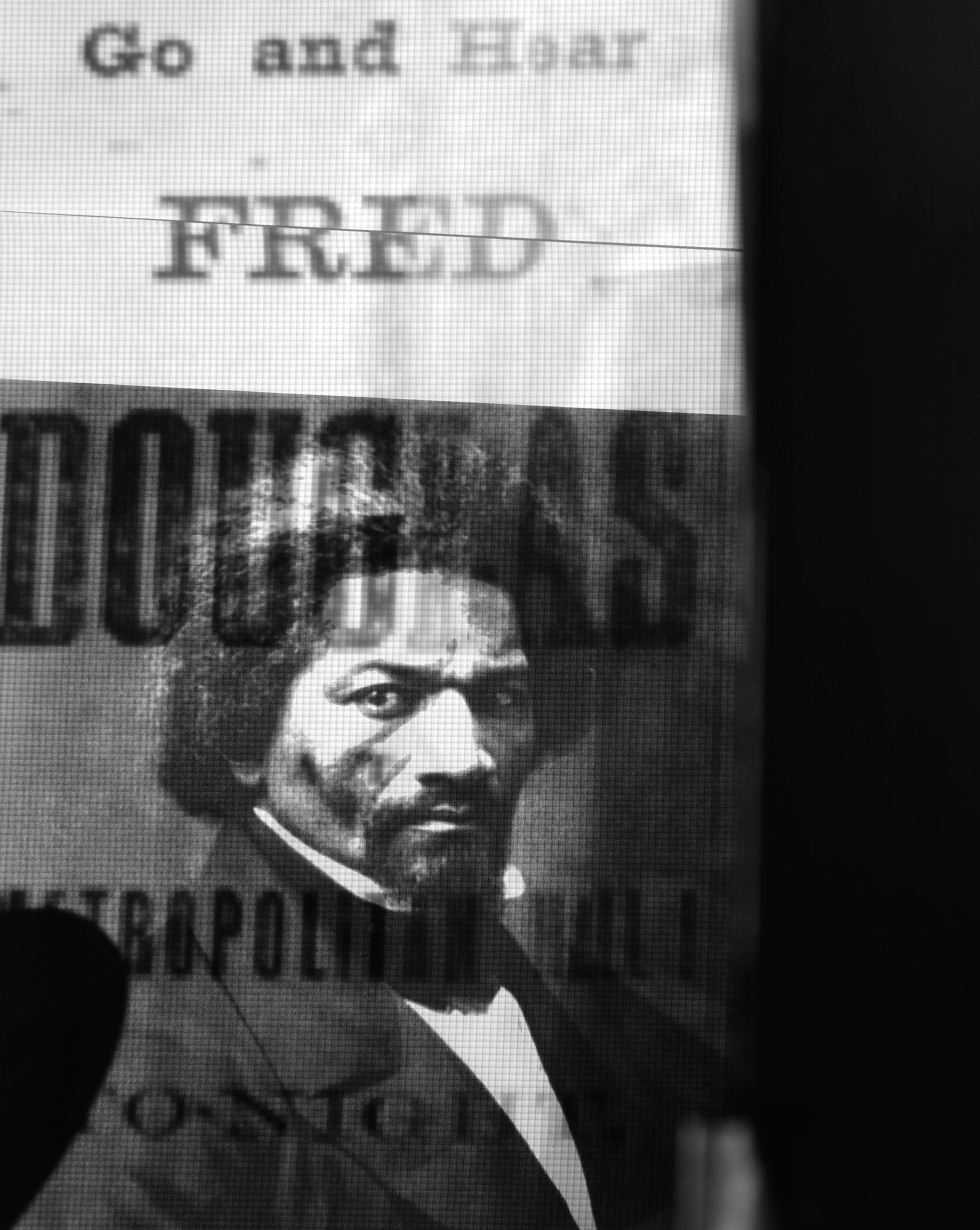Try GOLD - Free
The Annotated Frederick Douglass
The Atlantic
|December 2023
In 1866, the famous abolitionist laid out his vision for radically reshaping America in the pages of The Atlantic.

In his third autobiography, Life and Times of Frederick Douglass, while reflecting on the end of the Civil War, Douglass admitted that "a strange and, perhaps, perverse feeling came over me." Great joy over the ending of slavery, he wrote, was at times "tinged with a feeling of sadness. I felt I had reached the end of the noblest and best part of my life; my school was broken up, my church disbanded, and the beloved congregation dispersed, never to come together again.” In recalling the postwar years, Douglass drew from a scene in a Shakespearean tragedy to express his memory of that moment: "Othello's occupation was gone.' In Othello, Douglass perceived a character, the former high-ranking general and "moor of Venice," who had lost authority and professional purpose. Douglass harbored a special affinity for this most famous Black character in Western literature, whose mental collapse and horrible end lingered as a warning in a famous speech: "O, now, for ever / Farewell the tranquil mind! Farewell content!"
In 1866, Douglass took up his pen to try to capture this mome of transformation, both for himself and for the United States. For the December issue of this magazine that year, in an essay simply titled "Reconstruction," Douglass observed that "questions of vast moment" lay before Congress and the nation. Nothing less than the essential results of the "tremendous war," he writes, were at stake. Would the war become "a miserable failure ... a scandalous and shocking waste of blood and treasure," or a "victory over treason," resulting in a newly reimagined nation "delivered from all contradictions and based loyalty, liberty, and equality"? In this inquiry, Douglass's new role as a conscience of the country became clarified. His leadership had always been through words and persuasion, written and oratorical. How, now that the war was over, would he employ his incomparable voice?
This story is from the December 2023 edition of The Atlantic.
Subscribe to Magzter GOLD to access thousands of curated premium stories, and 10,000+ magazines and newspapers.
Already a subscriber? Sign In
MORE STORIES FROM The Atlantic

The Atlantic
The Realist Magic of Philip Pullman
The Golden Compass author tells us how to love this world. It's not easy.
9 mins
December 2025

The Atlantic
We Are Not One
When it came into view, Doctor Rustin was struck by its size.
14 mins
December 2025
The Atlantic
THE COMING ELECTION MAYHEM
Donald Trump's plans to throw the 2026 midterms into chaos are already under way.
22 mins
December 2025

The Atlantic
The One and Only Sammy
The astonishing, confounding career of Sammy Davis Jr.
7 mins
December 2025

The Atlantic
GET A REAL FRIEND
The false promise of AI companionship
10 mins
December 2025

The Atlantic
PRESIDENT FOR LIFE
Donald Trump is trying to amass the powers of a king.
10 mins
December 2025

The Atlantic
The Last of the Literary Outdoorsmen
Thomas McGuane—fisherman, hunter, rancher, writer—says “good riddance” to his kind.
14 mins
December 2025

The Atlantic
THE MISSING KAYAKER
What happened to Ryan Borowardı?
44 mins
December 2025

The Atlantic
The Man Who Rescued Faulkner
How the critic Malcolm Cowley made American literature into its own great tradition
9 mins
December 2025

The Atlantic
Patti Smith's Lifetime of Reinvention
Nearing 80, the punk poet reflects on the twists in her story that have surprised even her.
12 mins
December 2025
Translate
Change font size

